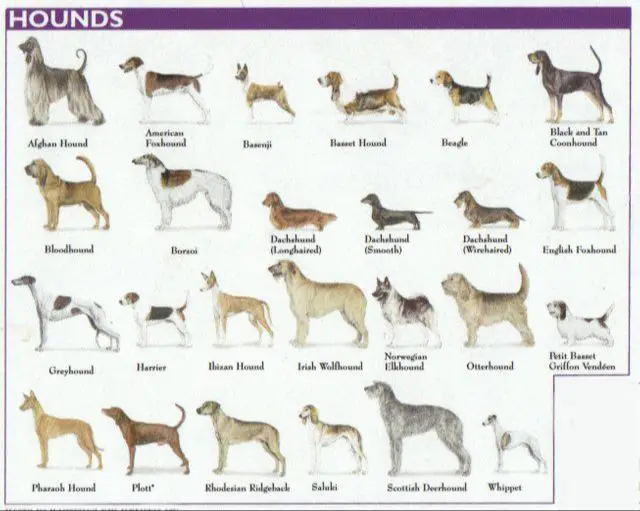Introduction
There seems to be some truth to the saying that dogs resemble their owners. Recent research has explored whether different dog breeds tend to attract owners with similar personality traits. With over 300 dog breeds recognized worldwide, owners have a wide selection to choose from. But do owners select certain breeds based on an instinctual compatibility? Do outgoing owners tend to prefer lively breeds while introverts are drawn to more reserved dogs? This article reviews studies examining links between dog breed personalities and the personality traits of their owners. We’ll explore reasons behind these connections, including similarities in energy levels, exercise needs, grooming requirements and more.
Background on Dog Breeds
The history of modern dog breeding traces back to the Victorian era in the 19th century, when dog shows first emerged in Britain. This catalyzed the development of distinct purebred dogs as people began selectively breeding dogs for specific physical traits and behaviors. According to the Wikipedia article on dog breeding, the Victorian obsession with dog shows fueled the creation of hundreds of new breeds within a few decades.
Today, purebred dogs fall into seven major breed groups defined by the American Kennel Club: sporting, hound, working, terrier, toy, non-sporting, and herding. Each group has distinct general traits and purposes. For example, hound breeds like Beagles were bred for hunting and have excellent senses of smell. Herding breeds like Collies are intelligent, agile and highly trainable. Some breeds even have stereotypical personality traits – Labrador Retrievers are often considered friendly and outgoing, while Chihuahuas have a reputation for being aggressive and nervous.

However, it’s important to note that while breeds may share common traits, there is significant diversity within breeds as well. Upbringing, training and socialization play a major role in any individual dog’s personality and behavior. Stereotyping dogs solely based on their breed can be misleading.
Measuring Dog Personality
There are several personality tests that have been developed specifically for dogs to assess key traits like sociability, excitability, aggression, and trainability. One popular test is the Dog Personality Questionnaire (DPQ), which uses a sliding scale questionnaire format to measure five main factors of dog personality: extraversion, motivation, training focus, amicability, and neuroticism.1 The DPQ provides dog owners with a detailed personality profile of their pet to better understand their behaviors and tendencies.
Some other common methods for evaluating a dog’s personality include observing their reactions during training, analyzing how they interact with other dogs, and noting their response to new people or environments. Experienced dog trainers and veterinarians can also provide professional assessments of a dog’s key traits after spending time interacting with and observing them.
Overall, assessing factors like sociability, excitability, aggression, and trainability through testing and observation allows dog owners to gain important insights into their pet’s unique personality and temperament.
Measuring Human Personality
The most widely accepted model for measuring human personality traits is known as the Big Five or Five Factor Model. This framework identifies five broad dimensions of personality: extraversion, agreeableness, openness to experience, conscientiousness, and neuroticism 12.
Extraversion is characterized by excitability, sociability, talkativeness, assertiveness, and high amounts of emotional expressiveness. People who are high in extraversion tend to be energetic and thrive in social situations. Introverts have lower levels of extraversion and tend to be more reserved and less outspoken.
Agreeableness reflects individual differences in cooperation and social harmony. Highly agreeable people value getting along well with others. They are generally considerate, friendly, generous, and helpful. Less agreeable people place self-interest above getting along with others.
Conscientiousness describes traits related to organization, impulse control, and goal-directed behaviors. Highly conscientious people are reliable, prompt, thorough, and tend to follow rules. Less conscientious individuals are more laid back, spontaneous, and sometimes unreliable.
Research Findings
Several studies have investigated potential correlations between dog breed personalities and owner personalities. A 2023 study published in the journal Applied Animal Behaviour Science analyzed the personalities of over 1,500 dog-owner pairs across breeds using surveys and assessments. The researchers found certain patterns of personality traits matching up between owners and their dogs, including indications that more extraverted owners tended to have more active, excitable dogs (Bender, 2023).

One study specifically looking at Labrador retrievers found significant correlations between owner and dog personalities on metrics like neuroticism and openness. More neurotic owners were more likely to own neurotic dogs, while more open owners tended to have more open dogs (Turcsán et al., 2012). However, some researchers caution that these correlations may be partly explained by owners perceiving their dogs’ personalities as similar to their own.
There are also indications that certain breeds may be better personality matches for owners with particular traits. For example, highly active owners seem compatible with high-energy herding breeds, while anxious owners may prefer calmer companion breeds. But the research is still limited in conclusively linking specific breeds to owner personality types.
Expert Insights
Dog experts like trainers, breeders and veterinarians have a wealth of experience and insights when it comes to matching dog breeds with owner personalities. Susan Smith, a veteran dog trainer with over 20 years of experience, explained that certain breeds tend to be better suited for owners with specific personality traits.
“For instance, very active owners who enjoy lots of outdoor adventures tend to do better with high energy dog breeds like Border Collies and Australian Shepherds,” said Smith. “On the other hand, more laidback owners often prefer mellower companion breeds like Pugs or Cavalier King Charles Spaniels.”
John Davis, a dog breeder who specializes in herding breeds, shared an anecdote about how he helped match a customer to the perfect dog. “I had a client who was very regimented and liked strict routines. I recommended a German Shepherd Dog which thrived under the structure and leadership my client provided.”
Dr. Sarah Lee, a veterinarian with over 30 years of practice, explained that while breed tendencies can provide helpful guidance, each individual dog has a unique personality. “It’s important to spend time interacting with the actual puppy or dog to see if your personalities are a good fit,” advised Dr. Lee. “The breed traits just give you a general idea of what to expect.”
Overall, experts emphasize taking the time to understand both your own personality and the typical traits of various breeds. Combining those insights with direct interaction and observation of individual dogs can help lead to great owner-dog personality matches.
Implications
Research on personality matching between dogs and owners suggests several benefits in considering breed traits and owner personalities during the adoption process. When a dog’s inherent tendencies align with an owner’s lifestyle and preferences, the owner-pet bond may be stronger and the risk of relinquishment reduced (Four Paws, 2022). However, while personality matching has advantages, it also has limitations. Breed traits reflect general tendencies but individual variation exists. Owners should be prepared to provide training, socialization and exercise as needed, regardless of breed. Furthermore, factors like a dog’s history and upbringing also shape its personality. While considering breed disposition can help guide selection, owners should remain flexible and committed to meeting each dog’s needs.
For potential adopters, breed personality profiles provide a helpful starting point when weighing options. But getting to know each dog as an individual is also important. Rather than rigidly adhering to stereotypes, owners should interact with dogs first-hand to assess compatibility. Adopting a breed that suits your personality can maximize satisfaction, yet remember – any dog’s temperament depends on genetics, environment, training and care. Personality matching alone cannot guarantee a perfect owner-dog relationship. Patience, commitment and adaptability remain vital. By balancing breed research with open-mindedness, adopters can make an informed choice while also recognizing each dog’s unique personality.
Guide to Choosing Your Breed
When looking for a new canine companion, it’s important to consider your own personality and lifestyle to find the right breed match. According to research, certain breeds tend to attract owners with particular personality traits.

For extroverted owners who enjoy being social and active, breeds like Labradors, Golden Retrievers, and German Shepherds make great companions. Their friendly, energetic nature fits well with outgoing owners.
Owners who are more introverted and desire a lower maintenance pet may prefer breeds like French Bulldogs, Pugs, or Cavalier King Charles Spaniels. These breeds tend to form strong bonds with their owners while requiring less activity.
Those looking for an intelligent breed to challenge them mentally might consider herding breeds like Border Collies and Australian Shepherds or working dogs like German Shorthaired Pointers. Their smarts and focus make them a good fit for owners who enjoy training.
When making your selection, be sure to research breeds thoroughly to find one that matches your lifestyle. Consulting with reputable breeders can also provide insights on personality and care requirements. While breed traits aren’t deterministic, they can serve as helpful starting points in your search for a furry companion.
Other Important Factors
While personality and breed tendencies can provide some initial guidance, there are other crucial considerations when choosing the right dog. As experts point out, “Factors like training, socialization, and environment play pivotal roles in shaping any dog’s behavior” (https://vcahospitals.com/know-your-pet/factors-to-consider-in-pet-selection—dogs). Focusing too much on personality or breed matches has limitations.
For example, an active lifestyle and activity level should be weighed when selecting a breed prone to high energy. As one source explains, “An active owner and a working breed are a match made in heaven. Less active owners may become quickly overwhelmed by breeds that need several hours of exercise a day” (https://ruffgers.com/2022/07/things-to-consider-when-choosing-a-dog-breed/). The environment a dog will spend time in is also crucial – an apartment dweller may struggle with a herding breed inclined to run and roam.

Additionally, proper training and socialization from an early age is essential no matter the breed. Owners need to put in the time and effort for obedience training, housebreaking, crate training, and exposing the dog to various people, places, and situations. With dedication to raising and caring for the dog, owners can develop strong bonds with their pet that go beyond any inherent breed tendencies.
Conclusion
In summary, the research shows that dog breeds often attract people with particular personality traits. Certain breeds like Golden Retrievers appeal to outgoing and friendly individuals, while independent breeds like Shiba Inus mesh with more introverted personalities. While general breed traits can serve as a starting point, it’s important to remember that each dog has their own unique temperament. The perfect match also depends on the owner’s lifestyle and experience level with dogs.
The key takeaways are that prospective owners should thoroughly research breeds to find ones that fit their personality, energy level, and lifestyle. Try meeting different breeds to get a sense of their temperaments. Also consider adopting adult dogs, as their personalities are already evident. Most importantly, commit to training and proper care to build a strong bond, regardless of the breed.
In conclusion, while breeds may gravitate toward certain personalities, what matters most is choosing a dog you connect with and can provide for. With dedication and compassion, dog lovers can develop fulfilling relationships with their canine companions.
